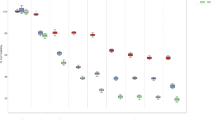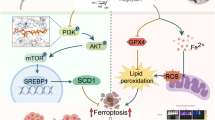Summary
The activity of the mTOR pathway is frequently increased in acute myeloid leukemia, and is tightly related with cellular proliferation. Leucine is tightly linked to the mTOR pathway and can activate it, thereby stimulating cellular proliferation. LAT3 is a major transporter for leucine, and suppression of its expression can reduce cell proliferation. Here, we show that suppression of LAT3 expression can reduce proliferation of the acute leukemia cell line, K562. We investigated the mRNA and protein expression of LAT3 in several leukemia cell lines and normal peripheral blood mononuclear cells (PBMNCs) using RT-PCR and Western blotting. We also evaluated cell viability using a methyl thiazolyl tetrazolium (MTT) assay after blocking LAT3 expression with either shRNA targeted to LAT3 or a small molecular inhibitor BCH (2-aminobicyclo-(2,2,1)-heptane-2-carboxylic acid). LAT3 mRNA and protein expression was detected in leukemia cell lines, but not in normal PBMNCs. Using K562 cells, it was found that cellular proliferation and mTOR pathway activity were significantly reduced when LAT3 was blocked with either shRNA or BCH. Our results suggest that leukemia cell proliferation can be significantly suppressed by blocking LAT3. This finding may lead to a new strategy to develop clinical therapy for the treatment of acute myeloid leukemia.
Similar content being viewed by others
References
Martelli AM, Tazzari PL, Evangelisti C, et al. Targeting the phosphatidylinositol 3-kinase/Akt/mammalian target of rapamycin module for acute myelogenous leukemia therapy: From bench to bedside. Curr Med Chem, 2007,14(19):2009–2023
Zhao S, Konopleva M, Cabreira-Hansen M, et al. Inhibition of phosphatidylinositol 3-kinase dephosphorylates BAD and promotes apoptosis in myeloid leukemias. Leukemia, 2004,18(2):267–275
Nicklin P, Bergman P, Zhang B, et al. Bidirectional transport of amino acids regulates mTOR and autophagy. Cell, 2009,136(3):521–534
Oda K, Hosoda N, Endo H, et al. L-Type amino acid transporter 1 inhibitors inhibit tumor cell growth. Cancer Sci, 2009,101(1):173–179
Yamauchi K, Sakurai H, Kimura T, et al. System L amino acid transporter inhibitor enhances anti-tumor activity of cisplatin in a head and neck squamous cell carcinoma cell line. Cancer Lett, 2009,276(1):95–101
Shennan DB, Thomson J. Inhibition of system L (LAT1/CD98hc) reduces the growth of cultured human breast cancer cells. Oncol Rep, 2008,20(4):885–889
Yanagidao Y Kanai Y, Chairoungdua A, et al. Human L-type amino acid transporter 1 (LAT1): characterization of function and expression in tumor cell lines. BBABiomembranes, 2001,1514(12):291–302
Sakata E, Ferdous G, Tsuruta T, et al. L-type amino-acid transporter 1 as a nvel biomarker for high-grade malignancy in prostate cancer. Pathol Int, 2009,59(22):7–18
Babu E, Kanai Y, Chairoungdua A, et al. Identification of a novel system L amino acid transporter structurally distinct from heterodimeric amino acid transporters. J Biol Chem, 2003,278(44):43 838–43 845
Wang Q, Bailey CG, Ng C, et al. Androgen receptor and nutrient signaling pathways coordinate the demand for increased amino acid transport during prostate cancer progression. Cancer Res, 2011,71(24):7525–7536
Author information
Authors and Affiliations
Corresponding author
Additional information
This project was supported by grants from the Hubei Natural Science Foundation of China (No. 2011CDB211) and the Returned Scholar Start-up Foundation of China Education Ministry (No. 2012940).
Rights and permissions
About this article
Cite this article
Xu, Sm., Tang, K., Meng, L. et al. Suppression of amino acid transporter LAT3 expression on proliferation of K562 cells. J. Huazhong Univ. Sci. Technol. [Med. Sci.] 33, 632–635 (2013). https://doi.org/10.1007/s11596-013-1171-2
Received:
Revised:
Published:
Issue Date:
DOI: https://doi.org/10.1007/s11596-013-1171-2




